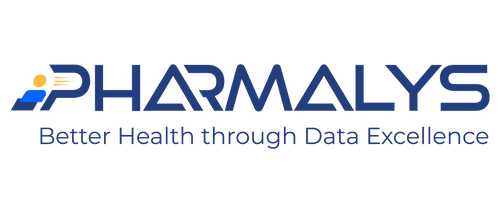Good Clinical Laboratory Practice accreditation
Good Clinical Laboratory Practice (GCLP) guideline was originally produced in 2002 with the purpose of providing guidance on the quality system required in laboratories that undertake the analysis of samples from clinical trials. Tim Stiles* co-authored the document and the Research Quality Association published the guideline. They updated it in December 2012.
Since 2002, this guidance has been widely adopted internationally by many organisations such as the World Health Organisation (WHO), pharmaceutical companies, research institutions, non-governmental organisations (NGOs), hospitals, contract research organisations (CROs) and academia.
End of 2022, Tim Stiles passed the running of the GCLP accreditation scheme to Pharmalys which objective is to develop and expand the scheme. The scheme is aimed at those laboratories who wish to demonstrate to sponsors of clinical trials and government agencies worldwide that the clinical laboratory operates to a standard that assures the reliability, quality and integrity of the work and results generated.
GCLP accreditation
Context
The regulatory environment within which clinical trials are conducted is continuing to change. Such changes are generally focused upon requiring more rigorous control in order to ensure patient safety and the reliability of data produced.
The International Committee on Harmonisation (ICH) Good Clinical Practice (GCP) Guideline clearly specifies requirements such as the role of the Ethics Committee, the sponsor and the investigator. However, guidance is still very vague when defining the standards to apply in the analysis of samples from clinical trials.
The analysis of these samples forms an essential part of the clinical trials process and provides important data on a range of endpoints. Therefore, it is essential that sample collection, analysis and reporting is performed to a standard which will ensure that patient safety is not compromised and that data is reliable, accurate and in compliance with GCP regulations.
GCLP meets this requirement by providing a unified guidance, which includes guideline on the facilities, systems and procedures, that can be applied globally to clinical sample analysis. By so doing, GCLP encourages the mutual acceptance of clinical data by regulatory authorities around the world.
Our solution
GCLP accreditation scheme
It is recommended that GCLP be adopted by any organisation that analyses samples generated during the conduct of a clinical trial. The principles defined in this guideline are intended to be applied equally to the analysis of a blood sample for routine safety screening of volunteers as to pharmacokinetics or even the process for the analysis of electrocardiogram traces; indeed any sample from a clinical trial that is to be analysed.
The GCLP accreditation scheme has been operating since 2003 and includes 72 laboratories from around the world (Asia, Europe, Africa and USA) – plus 10 prospective members. The type of laboratories involved in the scheme includes Hospital Laboratories, Central Laboratories, Company laboratories, Research Laboratories and Investigator site laboratories. The type of work performed by these organisations include pharmacokinetic, screening, routine haematology, biochemistry and urinalysis, non-routine sample analysis such as immunology, serology, sample processing and any other activities involved in the collection, transportation, analysis or reporting of results from clinical trials.
Membership process
For the first three years of membership of the accreditation scheme, laboratories will need to be audited and accredited annually. The laboratory will be contacted by the administrator of the scheme before the expiry date, to arrange for re-assessment.
After three years on the scheme, it is anticipated that the laboratory will only require assessment every two years. An assessment can take 1 or two days at the laboratory, and involves the completion of a checklist, the preparation of a standard report with observations identified, the site responding to the report gives indication of corrective actions and upon satisfactory review of the responses a Certificate of Accreditation is issued. Pharmalys manages all steps of this accreditation process.
Application for membership
Laboratories that have implemented GCLP, and consider that they comply with the standard and wish to join the scheme should complete an application form
* Tim Stiles is Director of Qualogy Ltd, an internationally renowned consultancy firm that provides assistance to organisations implementing Good Clinical Practice (GCP), Good Laboratory Practice (GLP) regulations and Good Clinical Laboratory Practice (GCLP) guidelines. As a company, Qualogy provides training courses, contract archive and compliance services to the organisations working to the global GLP and GCP regulations. Tim has worked in organisations operating in compliance with GLP and GCP for the past 30 years.
